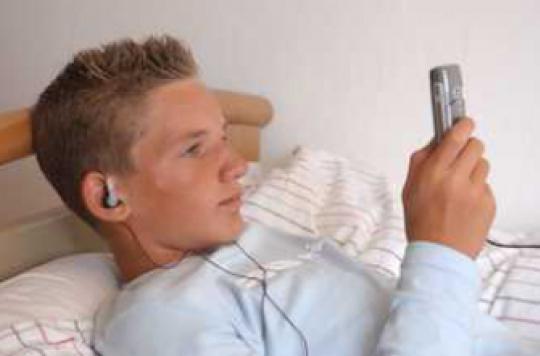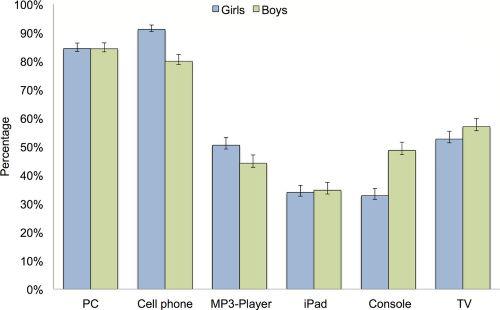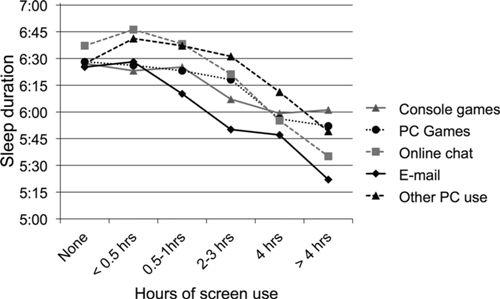Cellphones, tablets and computers reduce the length of sleep. They also affect its quality, since they lengthen the time it takes to fall asleep.

Screens affect the quality of sleep. This is a fact now demonstrated by the scientific community. But how much do televisions, computers and other electronic devices disrupt our internal clock? Norwegian researchers answer this question in the BMJ Open. They carefully studied the impact of various devices on sleep, and their cumulative effect.
The computer is popular
10,000 Norwegian adolescents (16-19 years old) were questioned in 2012 about their consumption of screens – television, computer, smartphone, tablet, mp3 player. The questionnaires focused on the time spent in front of these devices outside of class hours and the type of activity. Participants also detailed their sleep patterns on weekdays and weekends: what times they go to bed and get up, how long they have to sleep to feel rested, how long they take to fall asleep.
Overall, screen time influences the quality and duration of sleep in a bad way. Before going to bed, young men prefer to play with their console while young girls prefer online chat or use their smartphone. The computer is widely cited as a medium used in the hour before bedtime, in front of the cell phone and television.

Source : BMJ Open
A “cumulative” effect
All electronic devices extend the time it takes to fall asleep. The risk of waiting more than an hour to fall asleep is 50% higher in adolescents who watch television more than 4 hours per day. A duration also lengthened in the participants using an electronic device for 2 hours outside the school. The number of devices also matters: the time it takes to fall asleep is longer in those who alternate between 4 or more.
On average, young Norwegians consider that it takes 8 to 9 hours of sleep to be rested. But the nights are much shorter for computer addicts: those spending two hours sending emails or chatting online are 3 times more likely to sleep less than 5 hours. The same goes for young people spending more than 4 hours in front of a screen.
Here too, the researchers observe a “cumulative” effect. »Those using 2 or 3 devices are 50% more likely to get little sleep. The risk increases to 75% among users of 4 or more electronic devices.

Source : BMJ Open
New recommendations
According to the authors of this work, electronic devices interfere with sleep by stimulating the nervous system. But a simpler explanation is also mentioned: the time spent in front of the screens encroaches on the time of sleep. One more reason to review the recommendations for the use of these devices, the researchers conclude.
“We must develop specific recommendations on the amount and duration of use of electronic media according to age,” they write. “The current recommendation is not to have a television in the bedroom. It appears, however, that other electronic devices exert the same negative influence on sleep – such as computers and mobile phones. Before going to sleep, it would be best not to stare at the screen.
.














